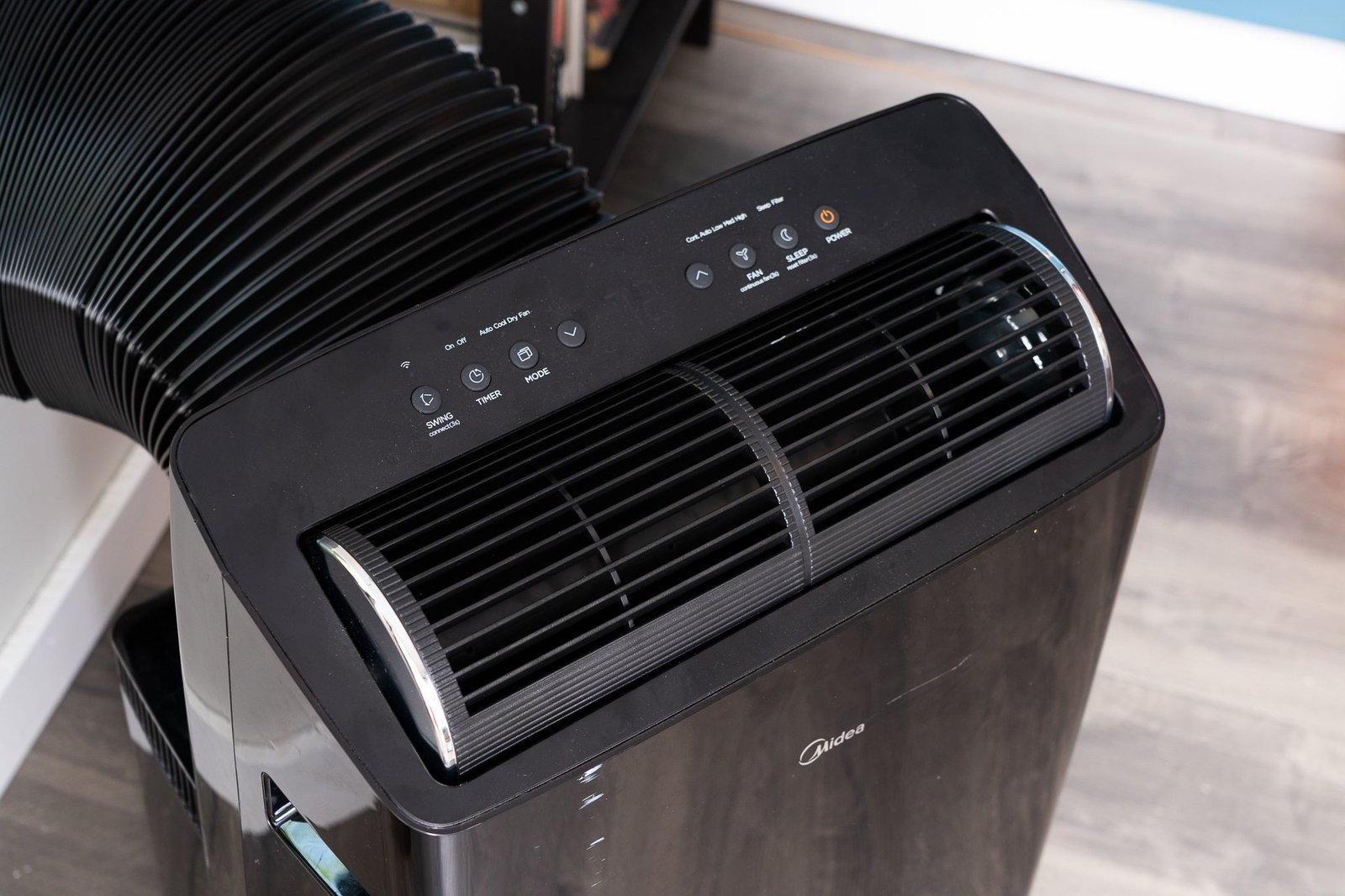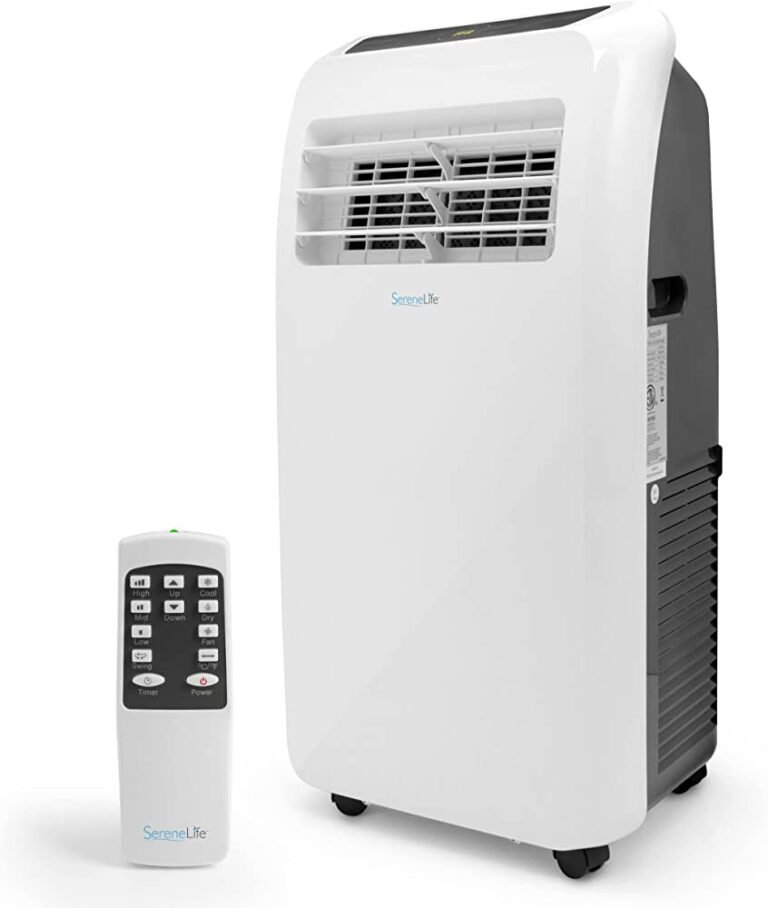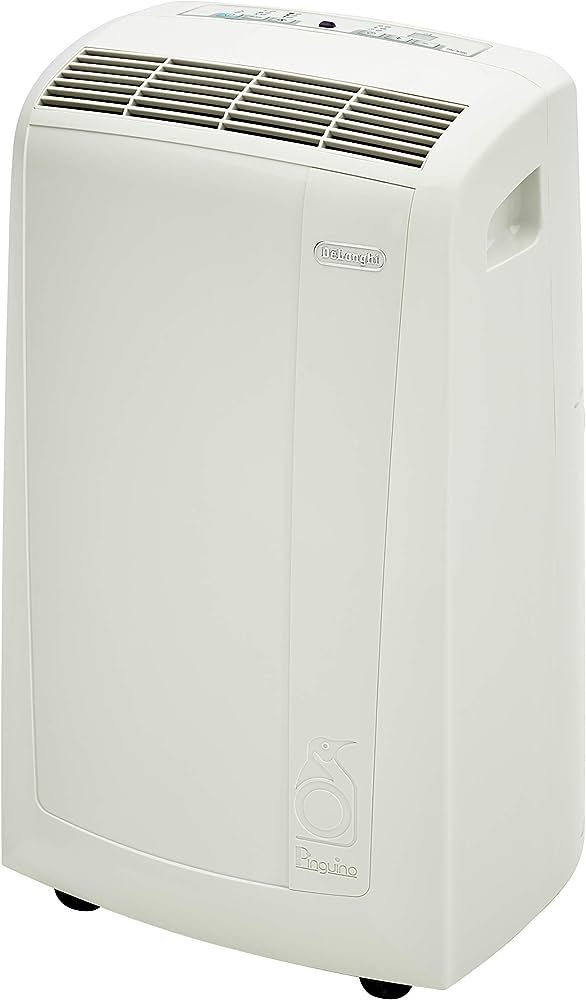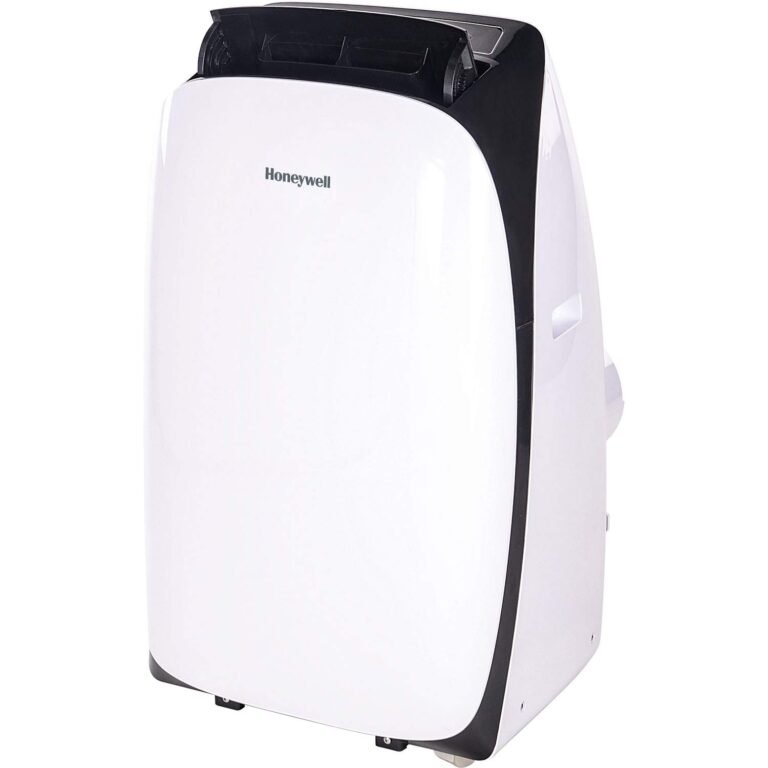Why Is My Portable Air Conditioner Making a Loud Noise: Expert Troubleshooting Guide
Your portable air conditioner may be making a loud noise due to a faulty fan or motor. The noise could also be caused by loose or worn-out parts.
A portable air conditioner is a convenient and efficient way to cool down your living space, but it can be quite frustrating when it starts making loud noises. These noises not only disrupt your peace and quiet but also indicate a potential problem with the appliance.
Identifying the cause of the noise is crucial in resolving the issue and ensuring the smooth operation of your portable air conditioner. We will explore the reasons why your portable air conditioner might be making a loud noise and provide possible solutions to help you address the problem effectively. By understanding the underlying causes, you can take the necessary steps to restore tranquility and cool comfort to your home.
Understanding The Different Types Of Noises
Portable air conditioners can make loud noises due to various reasons. Understanding the different types of noises can help identify and fix the issue, ensuring more peaceful and quiet cooling.
Portable air conditioners are a convenient solution for those hot summer days when you need a cool and comfortable environment. However, it can be quite annoying when your portable air conditioner starts making loud and disturbing noises. Understanding the different types of noises that your portable air conditioner may produce can help you diagnose the problem and find a possible solution.
Let’s dive into some common noises and what they could mean:
Clanking Or Banging Noises
- Loose or damaged components: Check for loose parts such as fan blades, screws, or motor mounts. Tighten or replace them if necessary.
- Debris in the unit: Ensure that there is no foreign object, like twigs or debris, stuck in the air conditioner. Clean it thoroughly to eliminate any obstructions.
- Faulty compressor: A malfunctioning compressor could cause clanking or banging noises. It might require professional attention or replacement.
Rattling Or Vibrating Noises
- Loose panels: Check if any panels on the portable air conditioner are loose. Tighten them to reduce vibrations and rattling sounds.
- Faulty fan motor: A worn-out or faulty fan motor can cause rattling or vibrating noises. Consider replacing the motor if needed.
- Improper installation: Ensure that your portable air conditioner is properly installed. Improper installation can lead to excessive vibrations and noises.
Hissing Or Whistling Noises
- Leaking refrigerant: Hissing noises could indicate a refrigerant leak. Contact a professional technician to identify and fix the leak as it requires specialized attention.
- Clogged condensate line: A blocked condensate line can cause hissing or whistling sounds. Clean the line to ensure proper drainage and prevent the noise.
- Air leakage: Check for any gaps or cracks in the ductwork or windows that may be causing air leakage. Sealing them can resolve the hissing or whistling noises.
Remember, if you are unsure about the cause of the noise or unable to fix it yourself, it’s always best to consult a professional technician. They have the necessary expertise to diagnose the problem accurately and provide appropriate solutions.
Troubleshooting Common Causes Of Loud Noises
Portable air conditioners can be a nuisance when they start making loud noises. Discover the common causes behind this issue and learn how to troubleshoot them effectively. Stay cool and peaceful with these helpful tips.
Is your portable air conditioner suddenly making an unsettlingly loud noise? Don’t worry, we’ve got you covered! A noisy portable air conditioner can be quite bothersome, especially when you’re trying to relax or get a good night’s sleep. In this section, we’ll explore some common causes of these loud noises and provide troubleshooting tips to help you resolve the issue.
Loose Or Dislodged Parts
- Loose Screws: Check for any loose screws in the casing of your portable air conditioner. Tighten them gently to secure any loose parts.
- Loose Fan Motor: A loose fan motor can cause excessive vibrations and create noise. Carefully inspect the fan motor and tighten any loose connections.
- Loose Exhaust Duct: The exhaust duct plays a crucial role in expelling hot air from your portable air conditioner. Ensure it is securely connected to both the unit and the window vent.
Damaged Fan Blades
- Bent Blades: If your air conditioner’s fan blades are bent, they can create an imbalance, resulting in loud noises. Inspect the blades and gently straighten any bent ones. If they’re severely damaged, consider replacing them.
- Cracked Blades: Cracked fan blades can create a disruptive rattling sound. Examine the blades for any cracks and replace them if necessary.
- Dust and Debris: Accumulated dust or debris on the fan blades can hamper their smooth operation, leading to noise. Clean the blades using a soft cloth or brush to remove any dirt.
Blocked Air Vents
- Obstructed Airflow: When the air vents of your portable air conditioner are blocked, it can cause turbulence and generate loud noises. Remove any objects, furniture, or other items that might obstruct the airflow around the unit.
- Clogged Air Filters: Dirty or clogged air filters can restrict proper airflow, making your air conditioner work harder and produce more noise. Clean or replace the filters regularly to maintain efficient operation.
- Blocked Condenser Coils: Blocked condenser coils can impede airflow and cause your air conditioner to produce loud noises. Carefully clean the coils using a soft brush or vacuum to remove any dirt or debris.
Remember, regular maintenance and cleaning can prevent or resolve many of these issues. By troubleshooting these common causes of loud noises, you can bring tranquility back into your space and enjoy the cool comfort of your portable air conditioner without the distracting disturbances.
Solutions And Fixes For The Loud Noises
Is your portable air conditioner making loud noises? Get solutions and fixes to address this issue and enjoy a quieter and more comfortable cooling experience.
Is your portable air conditioner making a loud noise? Don’t worry, we’ve got you covered with some easy solutions and fixes that will bring back the peace and quiet to your space. In this section, we’ll explore three common causes of loud noises in portable air conditioners and how you can address them effectively.
Tightening Loose Parts
One of the first things to check when your portable air conditioner is making a loud noise is whether any parts have become loose. Here’s what you can do:
- Inspect the unit: Carefully examine the exterior of your air conditioner for any visible signs of loose parts, such as screws, panels, or grills.
- Tighten screws: If you notice any loose screws, grab a screwdriver and secure them back into place.
- Check grille assembly: The grille assembly can sometimes vibrate and cause noise. Ensure that it is properly attached and not rattling.
Replacing Damaged Fan Blades
Another culprit behind loud noises in portable air conditioners can be damaged or bent fan blades. Here are the steps to fix this issue:
- Power off the unit: Before proceeding, make sure to turn off the air conditioner and unplug it for safety.
- Remove the front grille: Take off the front grille carefully to access the fan blades.
- Examine the blades: Inspect the fan blades for any signs of damage, such as cracks or bends.
- Replace damaged blades: If you find any damaged blades, it’s best to replace them with new ones. Contact the manufacturer or a professional service technician for assistance in finding the correct replacement blades.
Clearing Blocked Air Vents
Blocked air vents can also contribute to the noisy operation of your portable air conditioner. Follow these steps to tackle this issue:
- Clean the air filter: Start by removing the air filter and cleaning it according to the manufacturer’s instructions. A clogged filter can obstruct airflow, causing unnecessary noise.
- Check for obstructions: Look inside the unit and inspect the air vents for any objects or debris that may be blocking the airflow.
- Gently remove obstructions: If you find any obstructions, carefully remove them using a soft cloth or brush. Be cautious not to damage any components while doing so.
Remember, regular maintenance and cleaning can help prevent loud noises in your portable air conditioner. By following these simple solutions and fixes, you can enjoy a peaceful and cool environment once again.

Credit: www.amazon.com
Checking And Tightening Loose Parts
If your portable air conditioner is making a loud noise, one possible solution is checking and tightening any loose parts. This can help eliminate vibrations and reduce the noise output for a quieter cooling experience.
Inspecting Screws And Fasteners
A portable air conditioner making a loud noise can be quite annoying, but don’t worry, there are steps you can take to identify and fix the issue. One common culprit for loud noises in portable air conditioners is loose parts.
Checking and tightening these loose parts is a simple process that can make all the difference in restoring peace and quiet to your space.
Inspecting screws and fasteners is a crucial step in identifying and addressing any loose parts that may be causing the noise. Here are the key steps to ensure everything is in place:
- Examine the outer casing: Start by visually inspecting the outer casing of the portable air conditioner. Look for any screws or fasteners that may be visible on the surface.
- Use a screwdriver: Grab a screwdriver and gently tighten any loose screws or fasteners that you find. Be cautious not to over tighten, as this can cause damage.
- Check the fan: The fan inside the air conditioner unit can also be a source of noise if its screws or fasteners are loose. Carefully open the unit and inspect the fan assembly.
- Tighten the fan screws: If you notice any loose screws or fasteners, use a screwdriver to tighten them. This step can significantly reduce noise generated by the fan.
- Reassemble the unit: Once all the screws and fasteners have been checked and tightened, securely reassemble the unit and ensure everything is back in its proper place.
By thoroughly inspecting and tightening the screws and fasteners of your portable air conditioner, you can effectively eliminate one potential cause of the loud noise.
Replacing Damaged Fan Blades
If your portable air conditioner is producing a loud noise, it might be due to damaged fan blades. Replacing these blades will help restore quiet operation to your unit.
Identifying Bent Or Broken Blades
- Start by examining the fan blades of your portable air conditioner for any signs of damage. Look for bent or broken blades, as they can cause your unit to make loud noises.
- If you notice any irregularities in the shape or position of the blades, take note of them as they may need to be replaced.
- Bent or broken fan blades can disrupt the airflow, leading to increased noise levels.
Replacing Blades
- To replace damaged fan blades, follow these steps:
- First, unplug your portable air conditioner from the power source for safety.
- Locate the retaining screws that secure the fan blade assembly in place. These screws might be visible on the front or rear of the unit.
- Use a screwdriver to remove the retaining screws and carefully detach the fan blade assembly.
- Take note of how the blades are positioned before removing them to ensure proper reassembly. You can also take pictures for reference.
- Purchase a replacement fan blade assembly from the manufacturer or an authorized dealer. Make sure it is compatible with your specific air conditioner model.
- Once you have the new fan blade assembly, align the blades with the motor shaft and carefully attach it to the unit.
- Secure the assembly in place by tightening the retaining screws.
- Double-check the positioning of the blades to ensure they are balanced and not obstructing any components.
- Plug your air conditioner back in and test it to see if the loud noise has been resolved.
Remember to exercise caution when replacing fan blades, and if you are unsure, it is advisable to consult a professional technician to avoid any potential risks or damages. Regular maintenance and prompt replacement of damaged blades can help keep your portable air conditioner running smoothly and quietly.
Clearing Blocked Air Vents
Discover how to address the issue of a loud noise from your portable air conditioner by clearing blocked air vents. Resolve the problem with these simple steps for a quieter and more efficient cooling experience.
Portable air conditioners can be a great addition to any home or office, providing much-needed relief during hot summer months. However, if you notice that your portable air conditioner is making a loud noise, it can be quite frustrating and disruptive.
One common reason for this issue is blocked air vents. In this section, we will explore two essential steps to clear blocked air vents: removing debris and obstructions, as well as cleaning the air filter.
Removing Debris And Obstructions:
- Inspect the air vents carefully for any visible signs of debris, such as dust or dirt accumulation.
- Use a soft brush or vacuum cleaner to gently remove the debris from the vents.
- Ensure that there are no objects obstructing the airflow, such as curtains or furniture positioned too close to the air conditioner.
- Pay special attention to the condenser coils, as they can often become clogged with dirt or debris. Clean them gently using a soft brush or a coil cleaning solution.
- Regularly check and clean the fan blades, as they can also accumulate dust and dirt over time, causing them to become unbalanced and noisy.
Cleaning The Air Filter:
- Locate the air filter on your portable air conditioner; it is usually located at the back or side of the unit.
- Carefully remove the air filter from its housing. Take note of any instructions provided by the manufacturer.
- Rinse the air filter under running water to remove any dust or dirt. Do not use excessive force, as this could damage the filter.
- If the air filter is particularly dirty, consider soaking it in a mixture of warm water and mild detergent for a few minutes, then rinse it thoroughly.
- Allow the air filter to dry completely before placing it back into the air conditioner.
- Regularly clean or replace the air filter according to the manufacturer’s recommendations. A dirty or clogged filter can restrict airflow and cause the unit to work harder, resulting in increased noise levels.
By following these steps and ensuring that your air vents are clear of debris and your air filter is clean, you can help reduce the loud noise generated by your portable air conditioner. Remember to check these components regularly to maintain optimum performance and enjoy a quieter cooling experience.
Regular Maintenance Tips To Prevent Future Noises
Learn how to prevent future noises from your portable air conditioner with regular maintenance tips. Discover the reasons behind the loud noises and take appropriate steps to fix them. Stay cool and enjoy a quiet environment with these helpful suggestions.
If your portable air conditioner is emitting loud noises, it’s important to take action before the issue escalates. Regular maintenance can help prevent future noises and keep your unit running smoothly. Here are some effective tips to consider:
Cleaning And Dusting Regularly:
- Remove any visible dirt or debris from the air conditioner’s vents, filters, and condenser coils.
- Dust the unit’s exterior using a soft cloth or brush to avoid scratching the surface.
- Use a vacuum cleaner with a brush attachment to clean hard-to-reach areas and remove accumulated dust and dirt.
- Ensure that the air conditioner is turned off and unplugged before attempting to clean or dust its components.
Lubricating Moving Parts:
- Regularly oil the motor and other moving parts of your portable air conditioner to prevent friction and noise.
- Consult the user manual to identify the specific components that require lubrication and use the recommended lubricant.
- Apply the lubricant sparingly and avoid over-oiling, as it can attract more dust and debris.
Performing Routine Inspections:
- Regularly inspect the fan blades for any signs of damage or debris that could cause noise while in operation.
- Check for loose connections, bolts, or screws and tighten any that are found to be loose.
- Examine the air conditioner’s internal components for any signs of wear and tear, such as worn belts or rubber gaskets, and replace them if necessary.
- Keep an eye out for any leaks and address them promptly to prevent further damage and noise.
By following these regular maintenance tips, you can help prevent future noises and ensure that your portable air conditioner operates efficiently. Keep in mind that proper maintenance not only enhances the lifespan of your unit but also ensures a quieter and more comfortable environment.
Frequently Asked Questions Of Why Is My Portable Air Conditioner Making A Loud Noise
How Do You Fix A Noisy Portable Air Conditioner?
To fix a noisy portable air conditioner, clean or replace the air filter, tighten any loose screws, ensure proper placement and level, and lubricate the fan motor.
Why Is My Portable Ac So Noisy?
Portable air conditioners can be noisy due to the compressor, fan motor, or loose components.
**1. Why Is My Portable Air Conditioner Making A Loud Noise? **
Portable air conditioners can make loud noises due to various reasons such as loose parts, worn-out fan blades, or a malfunctioning compressor. The noise could also be a sign of something more serious, like a refrigerant leak. It is important to identify the source of the noise and address it promptly to prevent further damage to your unit.
**2. How Can I Fix The Loud Noise Coming From My Portable Air Conditioner? **
To fix the loud noise coming from your portable air conditioner, you can try tightening any loose parts, cleaning or replacing the fan blades, or checking the compressor for any issues. If the noise persists, it is recommended to contact a professional technician who can diagnose and repair the problem effectively.
Conclusion
To summarize, if you find your portable air conditioner making a loud noise, it’s important to identify the root cause and address it promptly. Start by checking if the noise is a result of loose or damaged parts, such as fan blades or compressor parts.
Regular maintenance, such as cleaning or replacing filters, can also prevent debris from obstructing the airflow, which can lead to excessive noise. Furthermore, ensure that the unit is properly leveled and stable on the floor. If the noise persists, it’s advisable to contact a professional technician who can inspect and repair your portable air conditioner.
Remember, minimizing noise not only improves the comfort of your living space but also helps prolong the lifespan of your air conditioner. So, stay proactive and enjoy the cool and quiet breeze from your portable air conditioner.






